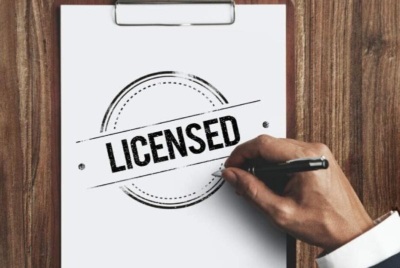If you are being investigated for a crime, or if you’ve been arrested and charged with a crime, do not submit to a lie detector test. Instead, at your first opportunity, contact a Grand Rapids criminal defense attorney for the advice and legal representation you are going to need.
What are your rights if you are under investigation for a crime or if you have already been charged? How do lie detectors work and what do they actually detect? How will a criminal defense attorney help you if you are charged with a crime in or near the Grand Rapids area?
If you will keep reading this brief discussion of lie detectors, your rights, and the law in the State of Michigan, these questions will be answered below.
What Do Lie Detectors Actually Detect?
A polygraph device cannot tell us if an exam subject is lying. Instead, what the device measures are the signs that may possibly suggest that the person is lying – that is, the polygraph device measures what are generally presumed to be the indirect indications that someone may be lying.
Specifically, a polygraph device measures significant physiological changes in an exam subject’s pulse, breathing, blood pressure, and electrodermal activity (the electrical conductance of the skin in response to sweat secretion).

These changes are recorded and analyzed to make a judgment about whether the subject of a polygraph exam was telling the truth or lying. Almost everyone knows that conclusions based on polygraph results are inexact. Those conclusions are part science and part guesswork.
How Is a Lie Detector Test Conducted?
The entire polygraph examination process usually takes about two hours. There are three parts to a polygraph examination
- In the pre-test section, the examiner and the subject go over the subject’s biographical and medical data, and the examiner explains to the subject how the polygraph device works and how the test will be conducted.
- In the testing and data collection part of the exam, sensors are placed on the subject’s body, and the subject answers the examiner’s questions.
- The review of the data is the final part of the examination process: An examiner should review the data using a standard, accepted scoring protocol.
At the conclusion of a lie detector examination, one of the following results may then be revealed to the exam subject
- “No significant response,” which is consistent with truthfulness
- “Significant response,” which is consistent with lying
- “Inconclusive,” which means the data doesn’t clearly indicate either truthfulness or lying
- “Incomplete,” which means that for some reason the examination was not completed
Are Polygraph Devices Accurate and Reliable?
A variety of factors affect a lie detector test’s accuracy and reliability, including the formatting of the questions and the credentials and training of the persons conducting the examination and interpreting the results.
In some polygraph examinations, the questions may be improper or asked improperly, or the test environment may be disruptive or even hostile. In other cases, the results may be wrongly interpreted.
One of the obvious problems is that lie detectors themselves can cause a test subject to experience considerable stress – particularly when the questions are about a serious crime and the examination is being conducted by police officers.
However, even under ideal conditions, polygraph tests deliver accurate results for only 80 to 90 percent of the subjects who submit to the tests. That is why, with rare exceptions, polygraph results may not be entered as evidence in a criminal trial in Michigan.
If You Are Asked to Take a Lie Detector Test
Nevertheless, because lie detector results may influence decisions about criminal investigations and prosecutions, it is essential for you to choose a Grand Rapids criminal defense lawyer who knows how to challenge polygraph examination results successfully.

If you are asked by the police to take a lie detector test, your answer should be a polite but very firm “no.” Then speak about your case – as quickly as possible – with a Grand Rapids criminal defense attorney.
In fact, if you are placed under arrest and charged with any felony or misdemeanor in or near the Grand Rapids area, you must exercise your right to remain silent. Simply tell the police, “I would prefer not to answer your questions until my attorney can be here,” and then say no more.
How Are Lie Detector Tests Sometimes Misused?
Although polygraph results may not be entered as evidence in a criminal trial in Michigan, prosecutors and police officers may use polygraph exam results to implicate a suspect for a crime.
The wrong results could be used to justify making you the focus of a criminal investigation when investigators should be focusing elsewhere. It’s important that you do not submit to a lie detector test – unless your criminal defense attorney believes taking the test will strengthen your defense.
Under Investigation? What Steps Should You Take?
As soon as you know that you are the target of a police investigation, the only practical option is contacting a Grand Rapids criminal defense lawyer. Sometimes an investigation can take months, and it’s your future that will be at stake. Let a defense attorney help.

Your attorney can intervene on your behalf and may be able to “get in front of” the investigation, head off any criminal charges before they’re filed, and find a resolution that’s acceptable to all parties involved in the investigation.
What If You Are Charged With a Crime?
If you are charged with a crime, contacting a good criminal defense lawyer as quickly as possible is the best way to fight the criminal allegations against you. In most cases, your attorney’s first step will be seeking to have the charge or charges dropped or to have the case dismissed.
If the charge or charges cannot be dropped or dismissed, and you are innocent, insist on your right to a jury trial. In most cases, your defense lawyer will uncover the truth, tell the jury exactly what happened, and ask the jurors to return a not guilty verdict.
However, if the state’s case against you is conclusive, and you are going to be convicted, your attorney may be able to negotiate an acceptable plea deal. Typically in a plea deal, a suspect pleads guilty to a lesser charge and agrees to serve a reduced or alternative sentence.
Your lawyer will explain the details of a trial or plea deal if your case gets that far. The important things to remember are: Contact a lawyer as soon as you know that you’re under investigation for a crime, and do not submit to a lie detector test before you’ve met with your attorney.













